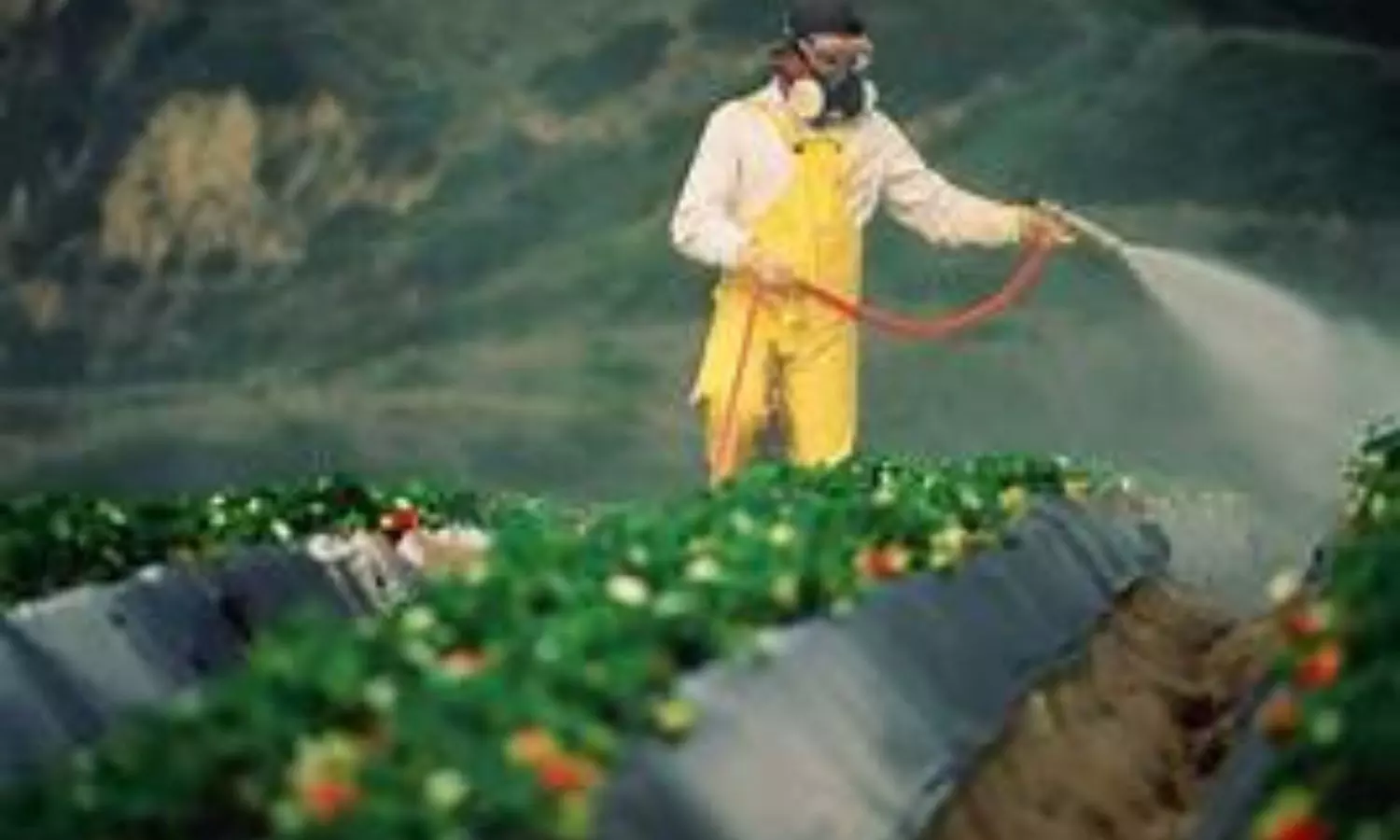Health Ministry Urges Stricter Pesticide Monitoring in Food

New Delhi: Union Minister of State for Health and Family Welfare Prataprao Ganpatrao Jadhav has called for a nationwide strategy to strengthen the monitoring of pesticide residues in food commodities. Speaking at the National Stakeholder Consultation on Challenges in Monitoring Pesticide Residues in Food Commodities, organized by the Food Safety and Standards Authority of India (FSSAI) under the Ministry of Health and Family Welfare, he stressed the need for collective efforts to ensure food safety and sustainability.
“This consultation is the first in a series of discussions on emerging challenges such as sustainable packaging, nutraceuticals, and antimicrobial resistance. We must focus on developing a robust monitoring mechanism to ensure that pesticide residues in food remain within safe limits,” Jadhav said while addressing stakeholders.
Appreciating FSSAI's initiative, Jadhav highlighted the importance of reviewing current pesticide monitoring practices and strengthening food safety frameworks. He pointed out that pesticides, while essential for protecting crops, must be used judiciously to minimize their adverse impact on public health.
“Today’s farmers are more adaptive to new technology, making it easier to educate them on Good Agricultural Practices (GAPs) and the proper use of pesticides. By adopting scientific methods, we can reduce residue levels and improve food quality,” he added.
He further emphasized the need for collaborative efforts among all stakeholders, including government agencies, industry players, farmer organizations, and consumer groups, to devise a concrete action plan aimed at reducing pesticide contamination in food commodities.
Union Health Secretary Punya Salila Srivastava also addressed the consultation, cautioning that the indiscriminate use of pesticides poses significant health risks. She stressed the importance of strengthening surveillance, enhancing laboratory capacities, and raising public awareness about safe pesticide usage.
"Ensuring access to safe food is our primary goal. This requires improved monitoring systems and data-driven decision-making to minimize the health risks associated with pesticide residues," she said.
The event brought together government officials, scientific experts, regulatory bodies, industry representatives, and consumer organizations to discuss key challenges in pesticide residue monitoring. Experts emphasized the need to align India’s Maximum Residue Limits (MRLs) with international standards such as Codex Alimentarius, while considering the unique agricultural and environmental conditions of India.
Devesh Chaturvedi, Secretary of the Ministry of Agriculture and Farmers' Welfare, raised concerns over spurious pesticides in the market and advocated for stringent regulations to ensure consumer safety. Meanwhile, Subrata Gupta, Secretary of the Ministry of Food Processing Industries, noted that excessive pesticide use not only harms public health but also negatively impacts trade and commerce.
FSSAI CEO G. Kamala Vardhana Rao, in his concluding remarks, reaffirmed the agency’s commitment to food safety through stringent monitoring and regulatory measures. He stated that insights from the consultation would help develop effective policies and action plans to enhance pesticide residue monitoring.
The discussions also explored sustainable solutions, including bio-pesticides, digital traceability systems, and Integrated Pest Management (IPM), to reduce dependency on chemical pesticides.
The consultation marks a crucial step towards strengthening food safety regulations, ensuring safer food consumption, and aligning India’s policies with global best practices.


